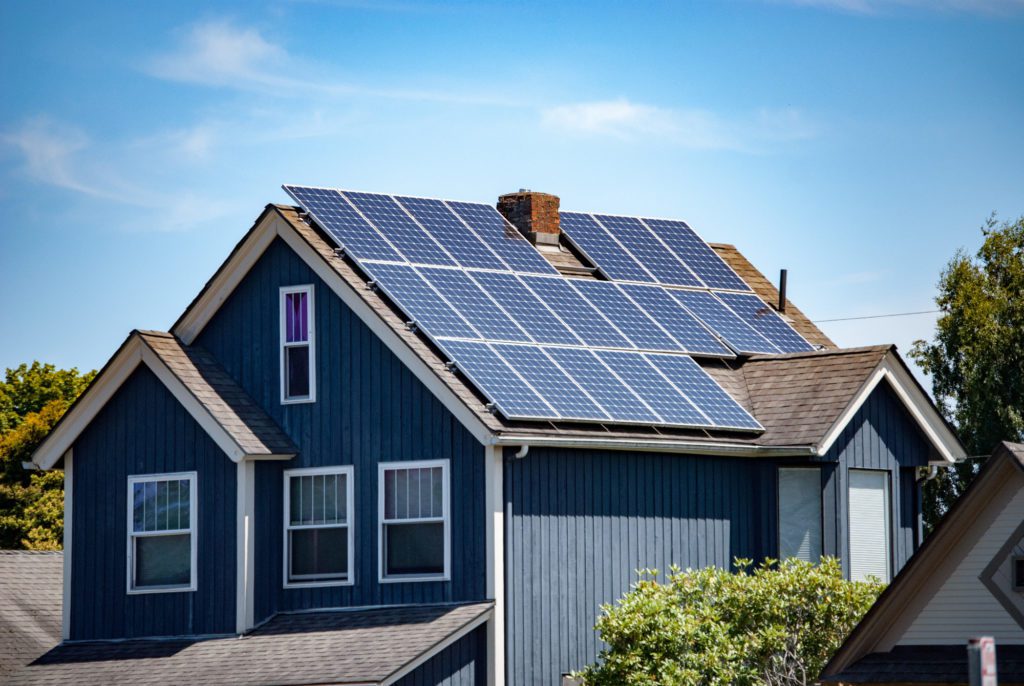
Are Solar Panels Safe to Have on Your Home?
In today’s world, where the shift towards renewable energy is gaining momentum, solar panels are emerging as a popular choice among homeowners. As with any significant transition or installation, it is natural to question the safety and impact of solar panels on your home. Let’s delve into the world of solar energy and assess the safety, benefits, and considerations surrounding solar panels.
Understanding the Safety of Solar Panels
Solar panels are considered largely safe and have been extensively tested to ensure they can withstand various weather conditions including wind, rain, and hail. Their design incorporates safety measures that prevent electrical and fire hazards. Moreover, solar panels reduce the reliance on fossil fuels, thereby contributing to decreased greenhouse gas emissions and a healthier environment. However, like any other electrical system, it is crucial to have them installed and maintained by qualified professionals to ensure optimal safety and efficiency.
Eco-Friendly Option
One of the most significant benefits of solar panels is their positive impact on the environment. Solar panels generate electricity by converting sunlight into electricity or transferring the sun’s heat to heating and ventilation systems. This process significantly reduces carbon emissions, helping to combat climate change by reducing dependence on fossil fuel-based energy sources.
Potential for Energy Independence
Solar panels not only contribute to environmental sustainability but also offer the potential for energy independence. By harnessing the power of the sun, homeowners can generate their own electricity, reducing their energy bills and ensuring a consistent power supply even in the event of grid outages.

Possible Concerns and Addressing Them
Despite their numerous benefits, some individuals have raised concerns regarding the safety of solar panel installations. One possible concern is the potential for fire hazards. Proper installation and maintenance by certified professionals can mitigate this risk. It’s also crucial to ensure that the solar panel system is compatible with your home’s electrical system to avoid any potential issues.
Another concern is the weight of the solar panels and the ability of the roof to support them. Before installation, a professional assessment of the roof’s structure is conducted to ensure it can withstand the weight of the solar panels.
Maintenance for Longevity and Safety
Regular maintenance and inspections of solar panel systems are essential for ensuring their longevity and safety. Professionals assess the solar panels and related systems to identify and resolve any issues, ensuring the system is functioning optimally and safely. This routine maintenance helps in preventing potential hazards and ensuring the efficiency and safety of your solar energy system.
Solar panels are not only a safe and eco-friendly option for homeowners but also contribute to energy independence and financial savings in the long run. Proper installation, regular maintenance, and adherence to safety guidelines ensure the efficiency and safety of solar panels, making them a valuable addition to your home. As we move towards a more sustainable future, embracing solar energy is a step in the right direction, offering safety, sustainability, and numerous benefits for homeowners and the environment alike.
Roof Requirements for Safe Solar Panel Installation
Ensuring that your roof is compatible and able to support solar panels is a crucial step before proceeding with the installation. Here are several key considerations and assessments that should be made regarding the condition and structure of your roof:
1. Roof Material:
- The material of your roof can impact its suitability for solar panel installation. Common materials like asphalt shingles, metal, and tiles are typically well-suited for solar panels. If your roof is made of a less common material, consult a solar installation professional to determine compatibility.
2. Roof Condition:
- Assess the condition of your roof. If it’s old or in need of repairs, it’s best to complete these before proceeding with solar installation. Installing solar panels on a dilapidated roof may lead to additional costs and complications in the future.
3. Roof Load-Bearing Capacity:
- Your roof must be structurally sound to support the weight of solar panels. An engineering evaluation should be done to determine the load-bearing capacity of your roof and ensure it can handle the additional weight of the solar panels.

4. Roof Size and Shape:
- The size and shape of your roof affect the number and arrangement of solar panels that can be installed. A larger, flat area is ideal for maximizing solar energy collection. Roofs with multiple levels or complex designs may require a more customized installation plan.
5. Roof Orientation and Tilt:
- Ideally, your roof should have a significant portion facing south to capture the most sunlight. The angle or tilt of your roof should also be considered, with an angle of around 30 degrees being optimal for solar energy production.
6. Shading and Obstructions:
- Evaluate the amount of shade your roof receives. Solar panels require direct sunlight to function optimally, and shaded areas can reduce the efficiency of your solar energy system. Ensure there are no significant obstructions like chimneys, vent pipes, or neighboring structures that cast shadows on your roof.
7. Local Building Codes and Regulations:
- Ensure that your solar panel installation complies with local building codes and regulations. Some regions may have specific guidelines regarding roof modifications and solar panel installations.
Consider Hiring a Professional:
A professional solar installer can thoroughly assess your roof and provide insights and recommendations for optimal and safe solar panel installation. The installer will conduct a detailed onsite evaluation, examining the roof’s structure, material, angle, and other factors, and design a solar panel system that suits your roof’s specifications and energy needs.
Ensuring your roof is in good condition, able to bear the load of the panels, has minimal shading, and adheres to local codes and regulations is essential for a successful and safe solar panel installation. Taking these steps not only guarantees the efficiency and longevity of your solar energy system but also safeguards the structure and integrity of your home.

Professional Installation vs. DIY: Enhancing Solar Panel Safety
In the age of do-it-yourself (DIY) projects, homeowners may be tempted to install solar panels independently. However, solar panel installation is a complex task that encompasses various critical elements, including electrical wiring, adherence to codes and regulations, and ensuring optimal functionality and safety.
To further emphasize the significance of professional solar installation, various authoritative bodies have set guidelines and standards that ensure the safety and efficiency of solar panel systems. For instance, the North American Board of Certified Energy Practitioners (NABCEP) offers certification for solar installation professionals, ensuring they have the necessary knowledge and expertise for safe and effective installations.Here’s a detailed look at what professional solar panel installers offer that DIY projects cannot:
Code Compliance
Solar panel installation involves compliance with numerous local, state, and national codes and regulations. Professional installers are well-versed in these regulations and ensure that your installation adheres to all necessary codes, avoiding legal issues and ensuring the safety and efficiency of the system.
Optimal System Performance
Professionals can accurately assess your property and design a solar panel system that meets your energy needs and maximizes efficiency. They use advanced tools and technology to ensure the panels are optimally positioned and installed to provide the highest energy output, enhancing the system’s performance and longevity.
Post-Installation Support
Professional solar panel installers often offer post-installation support and maintenance, ensuring your system continues to operate efficiently and safely. This ongoing support is crucial for addressing any issues promptly, maintaining the system’s performance, and ensuring its longevity.
Warranty Preservation
Most solar panels come with a manufacturer’s warranty, which may be voided if the installation is not carried out by certified professionals. Hiring a professional installer ensures that your warranty remains intact, providing you with protection and peace of mind.
While the allure of DIY solar panel installation may be tempting for some homeowners, the benefits of professional installation far outweigh the potential risks and challenges of a DIY approach. Ensuring the safety, efficiency, and longevity of your solar panel system through professional installation is an investment that pays off in the long-term security and performance of your solar energy setup.

Benefits of Hiring a Professional for Safe Solar Panel Installation
Installing solar panels is a significant investment and undertaking. Ensuring the safety and efficiency of the installation is paramount, and hiring a professional solar installer offers numerous advantages:
Expertise and Experience
Professional solar installers bring in-depth knowledge and experience to the project. They understand the intricacies of solar installations, ensuring that your system is installed correctly, efficiently, and safely.
Comprehensive Assessment
A professional will conduct a thorough assessment of your property, taking into account the roof structure, orientation, local climate, and other factors to design an optimal solar energy system for your specific needs.
Safety Assurance
Expert installers prioritize safety, using the right equipment and following established safety protocols to ensure the installation is done securely, protecting both your property and themselves during the process.
Tips for Choosing a Reputable Solar Panel Installer:
- Research and Reviews: Conduct comprehensive research on local solar installers. Read customer reviews and testimonials to gauge the satisfaction of previous clients.
- Verify Credentials: Ensure the installer is licensed, certified, and insured. Verify their credentials and check for any affiliations with industry organizations, which can be a testament to their quality and reliability.
- Ask for References: Request references and contact past clients to inquire about their experience with the installer. This direct feedback can provide valuable insights into the installer’s professionalism, workmanship, and customer service.
- Evaluate Experience: Opt for installers with extensive experience in the industry. Experienced professionals are more likely to deliver high-quality installation and service.
- Inquire About Warranty and Services: Ask about the warranty terms and post-installation services. A good installer will offer robust warranty conditions and provide ongoing support and maintenance services.
- Obtain Multiple Quotes: Get quotes from multiple installers to compare prices, services, and offerings. Avoid choosing based solely on price; consider the value and quality of service.
- Assess Communication and Customer Service: Evaluate the installer’s communication and customer service. A reputable installer will be responsive, clear, and helpful in addressing your queries and concerns.
By investing time in choosing the right professional solar installer, you ensure the safety, efficiency, and durability of your solar panel system, maximizing the return on your investment and contributing positively to the environment.

Solar Panels vs. Traditional Electricity: Safety and More
When considering the transition to solar panels, understanding how they compare to traditional electricity regarding safety and other factors is crucial. Let’s delve into the comparison:
1. Environmental Impact
Solar Panels:
- Carbon Footprint: Significantly reduces carbon emissions.
- Renewable Energy: Utilizes unlimited, clean energy from the sun.
Traditional Electricity:
- Carbon Footprint: Higher carbon emissions, especially if sourced from non-renewable energy.
- Renewable Energy: Less likely to use renewable sources.
2. Safety
Solar Panels:
- Fire Risks: Lower fire risk as solar panels are designed with multiple safety measures and rigorous testing to prevent electrical issues.
- Electrical Safety: Reduced risk of electrical accidents as systems are securely installed and grounded by professionals.
Traditional Electricity:
- Fire Risks: Higher potential for electrical fires due to issues like faulty wiring or overloading circuits.
- Electrical Safety: Requires regular maintenance and inspection to prevent electrical accidents.
3. Cost and Savings
Solar Panels:
- Initial Cost: Higher initial investment for installation.
- Long-Term Savings: Significant savings in electricity bills and potential tax incentives.
Traditional Electricity:
- Initial Cost: Lower initial cost.
- Long-Term Savings: Continuous electricity bills without the potential for solar-related savings or incentives.
4. Energy Independence
Solar Panels:
- Grid Dependence: Provides the option to go off-grid, offering energy independence and consistent power even in outages.
- Energy Storage: Allows energy storage for use during nighttime or cloudy days.
Traditional Electricity:
- Grid Dependence: Total reliance on the grid, leading to vulnerability during outages.
- Energy Storage: Does not offer personal energy storage options.

Increased Home Safety with Solar Panels
The use of solar panels enhances home safety in various ways:
- Reduced Fire Hazards: Solar panel systems are meticulously engineered and installed to minimize fire risks, offering greater safety compared to traditional electrical systems.
- Reliable Energy Supply: Solar panels with battery backup ensure a consistent energy supply, even during grid outages, protecting the home from potential issues related to power interruptions.
- Professional Monitoring and Maintenance: Reputable solar panel installers often provide monitoring and maintenance services, ensuring the system’s optimal and safe operation throughout its lifespan.
While solar panels require an initial investment, their contributions to home safety, environmental protection, and long-term savings make them a valuable and prudent choice for homeowners seeking a sustainable and safe energy solution.
Another essential aspect to cover regarding the safety of solar panels is the robustness of their design and the safety standards they are required to meet. This section could provide readers with insight into the technical and regulatory measures in place that ensure solar panels are a safe option for energy generation.
Robust Design and Safety Standards
Solar panels are crafted with longevity and safety in mind, ensuring they can withstand various environmental factors while operating efficiently and safely. Below is a detailed look at the design and safety standards of solar panels:
Materials Used
Solar panels are made from high-quality, durable materials, typically crystalline silicon, which is known for its robustness and longevity. These materials are rigorously tested to withstand different weather conditions, including high winds, heavy rain, and snow, ensuring they remain intact and functional in various climates.
Testing and Certification
Before reaching the market, solar panels undergo stringent testing to ensure they meet international safety and performance standards. Manufacturers conduct tests to assess their products’ resistance to impact, corrosion, and other environmental factors, guaranteeing their reliability and safety for consumers.
- IEC 61730: This is the international safety standard for photovoltaic (PV) modules, ensuring they are designed and tested for safe operation.
- UL 1703: In the United States, solar panels must meet this safety standard, set by Underwriters Laboratories, ensuring they are safe for use in various conditions.
Built-In Safety Features
Modern solar panels come with built-in safety features, such as rapid shutdown, which allows users to quickly and safely de-energize their solar panel system, minimizing the risk of electrical accidents in emergencies.
Regular Maintenance and Inspections
Routine maintenance and inspections by experts ensure the solar panel system continues to operate efficiently and safely. Any potential issues can be promptly identified and addressed, ensuring the system’s longevity and the safety of the property and its occupants.

The robust design, adherence to international safety standards, built-in safety features, professional installation, and regular maintenance all contribute to the overall safety of solar panels, making them a reliable and secure choice for homeowners seeking an alternative and sustainable energy source.
The Cost of Safety: Professional Solar Panel Installation
Investing in the safety and efficacy of your solar panel installation should always be a priority. While cutting corners might save you money in the short term, ensuring your solar panels are installed professionally is essential for guaranteeing their long-term performance and your peace of mind. Let’s delve into the costs associated with ensuring the utmost safety through professional solar panel installation.
Average Costs of Professional Solar Panel Installation
The average cost of solar panel installation by professionals can range widely based on the size and type of system, your location, and other factors. Generally, homeowners can expect to spend between $15,000 and $25,000 for a full solar panel system installation. Though this might seem like a hefty investment, the benefits of professional installation and the long-term savings on energy bills make it a cost-effective choice in the long run.

Breaking Down the Costs
- Equipment Costs:
- Solar panels, inverter, mounting hardware, and other necessary equipment.
- High-quality equipment ensures longevity and optimal performance.
- Labor Costs:
- Payment for the expertise and labor of trained and certified professionals.
- Ensures the project is completed efficiently, safely, and correctly.
- Permitting and Inspection Fees:
- Costs associated with ensuring the project adheres to local, state, and federal regulations.
- Avoids legal complications and ensures the system is up to code.
- Warranty and Post-Installation Support:
- Many professional installers offer warranties and post-installation support.
- Provides peace of mind and assistance in case of any issues or necessary maintenance.
Financial Assistance and Incentives
Many states offer financial incentives, rebates, and tax credits for solar panel installation, which can help offset the initial investment costs. For instance, the federal solar tax credit allows you to deduct 26% of the cost of installing a solar energy system from your federal taxes.
Long-Term Savings and Return on Investment
Investing in professional solar panel installation also translates into significant long-term savings. Professionally installed solar panels operate at optimal efficiency, maximizing your energy savings and reducing your utility bills. Over time, the system can pay for itself through these savings, all while enhancing the value of your property.
The cost of ensuring the safety and efficiency of your solar panel installation by hiring professionals is a worthy investment. It not only guarantees the optimal performance and longevity of your system but also provides peace of mind, knowing that your solar panels have been installed safely and securely, adhering to all relevant regulations and standards. The long-term financial benefits, from energy savings to increased property value, further underscore the cost-effectiveness of professional solar panel installation.

Leave a Reply